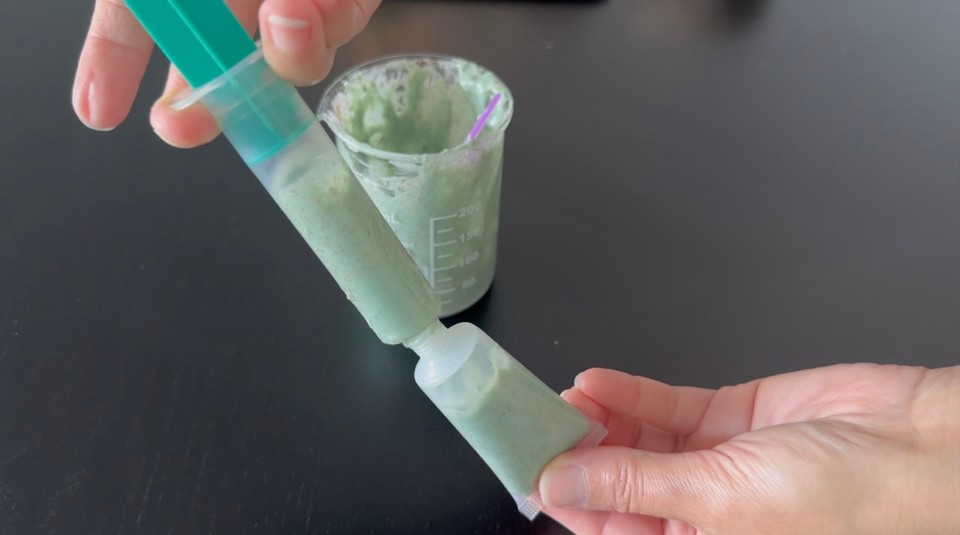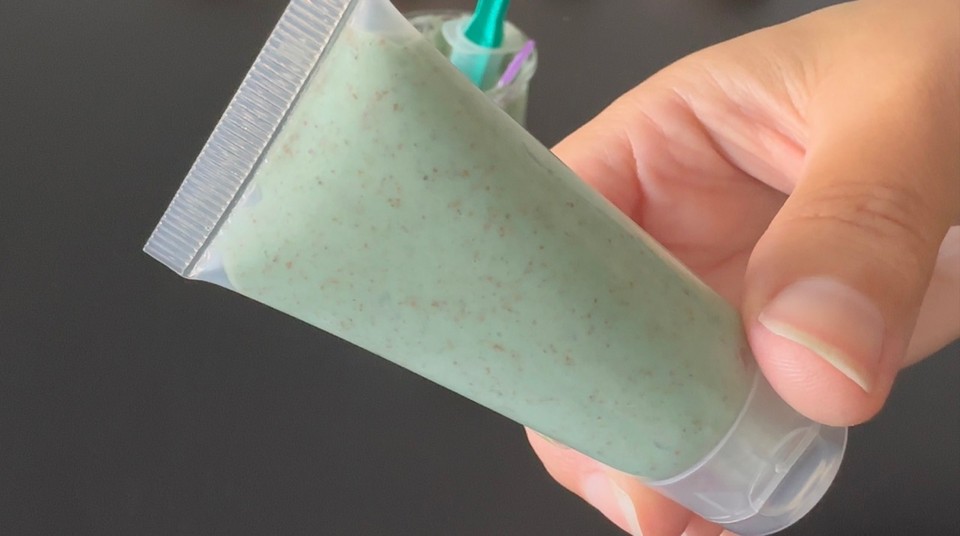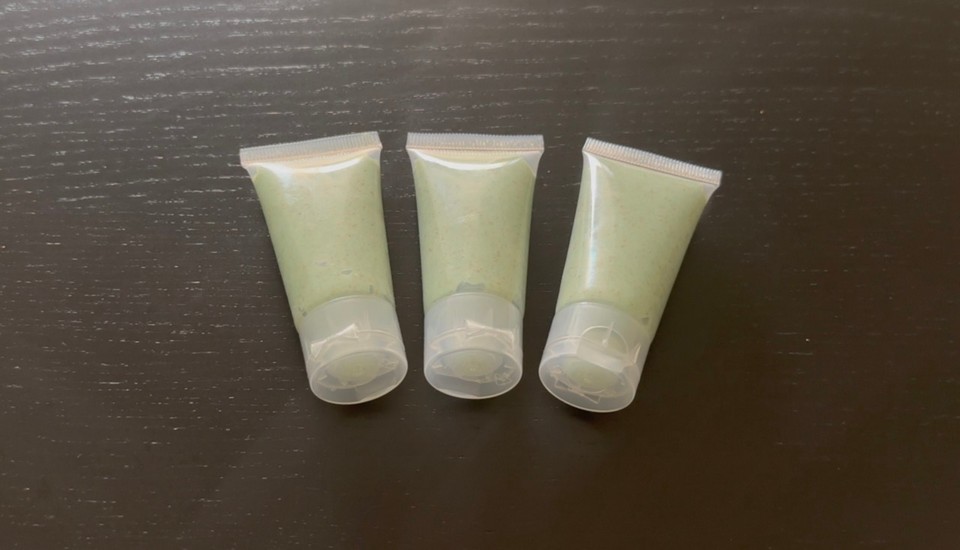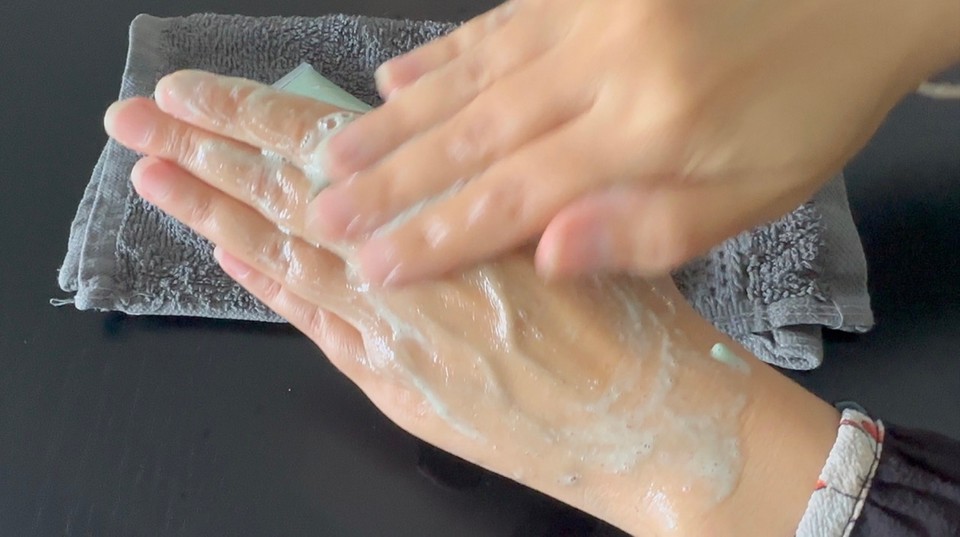Pumice and Lactic Acid Scrub
| Phase | Ingredient | Percent (%) | Weight (g) |
|---|---|---|---|
| Phase A | Glycerin | 6 | 6 |
| Xanthan gum soft | 1.4 | 1.4 | |
| Distilled water | 42.2 | 42.2 | |
| Decyl glucoside | 16 | 16 | |
| Phase B | Cocoa butter | 4 | 4 |
| Emulsifying wax (INCI - Cetearyl Wheat Straw Glycerides, Cetearyl Alcohol) | 4 | 4 | |
| Coffee oil (INCI - COFFEA ARABICA SEED OIL) | 8 | 8 | |
| Phase C | Lactic acid 80% solution | 4 | 4 |
| Cosgard (INCI - Benzyl Alcohol, Dehydroacetic Acid, Aqua) | 0.8 | 0.8 | |
| Fragrance (cucumber and melon) | 0.6 | 0.6 | |
| Phase D | Pumice superfine powder | 10 | 10 |
| Apricot pit powder (INCI - PRUNUS PERSICA SEED POWDER) | 3 | 3 |
*** Chlorophyll powder for color (INCI - SODIUM SULFATE, CI 75810)
You can help support my website and channel through the “buy me a coffee” page.
Here is the link: https://www.buymeacoffee.com/diycosmetica
Your support helps me keep sharing here more information and more formulas.
In this post, I'll go through the ingredients I used for this formula for pumice and lactic acid scrub. This scrub has a creamy, soft texture; the Pumice and the apricot pit powder are the exfoliators in this formula.
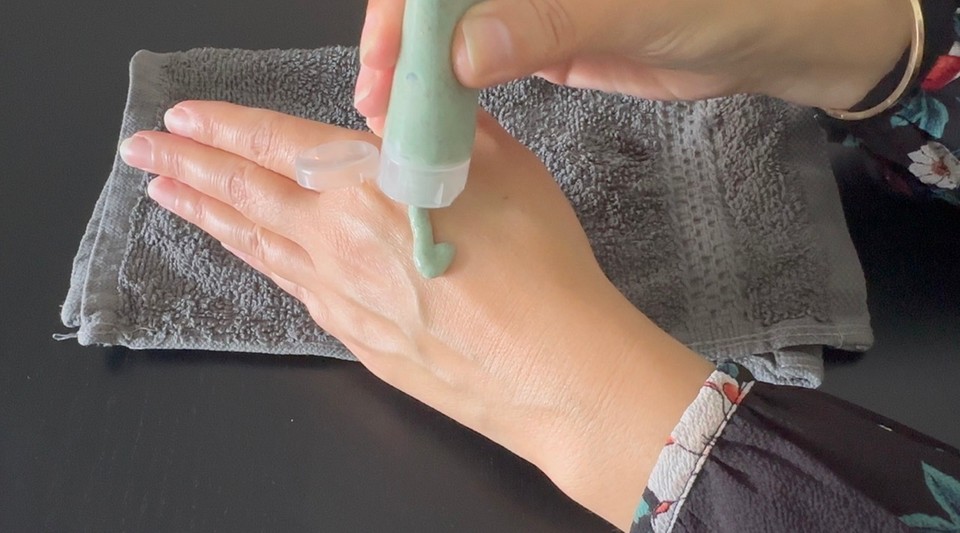
If you want to try more scrub formulas, you have the Solid Cleanser Scrub, the Face Creamy Exfoliate Cleanser, or the Face Cleanser Base With Endless Ways To Personalize. Let's go over the main ingredients in this formula:
Glycerin
Glycerin is a powerful humectant, attracting moisture from the air into your skin. It helps to maintain hydration, ensuring your skin remains soft, supple, and well-moisturized even after exfoliation.
Xanthan Gum Soft
Xanthan gum soft is a natural thickening agent, giving the scrub its smooth and gel-like consistency. It ensures the even distribution of exfoliating particles and other active ingredients, providing a uniform application. Xanthan gum also helps to stabilize the formulation, preventing the separation of components. You can use regular cosmetic xanthan gum.
Decyl Glucoside
Decyl glucoside is a gentle, non-ionic surfactant derived from natural sources like corn glucose and coconut oil. It provides the scrub's cleansing ability, effectively removing dirt, oil, and impurities from the skin without irritating. Its mild nature makes it suitable for all skin types, including sensitive skin. Decyl glucoside also helps to create a mild lather, which aids in the scrub's easy removal from the skin, leaving it feeling fresh and clean. If you don't have Decyl Glucoside, you can use Coco-Glucoside or Lauryl Glucoside instead.
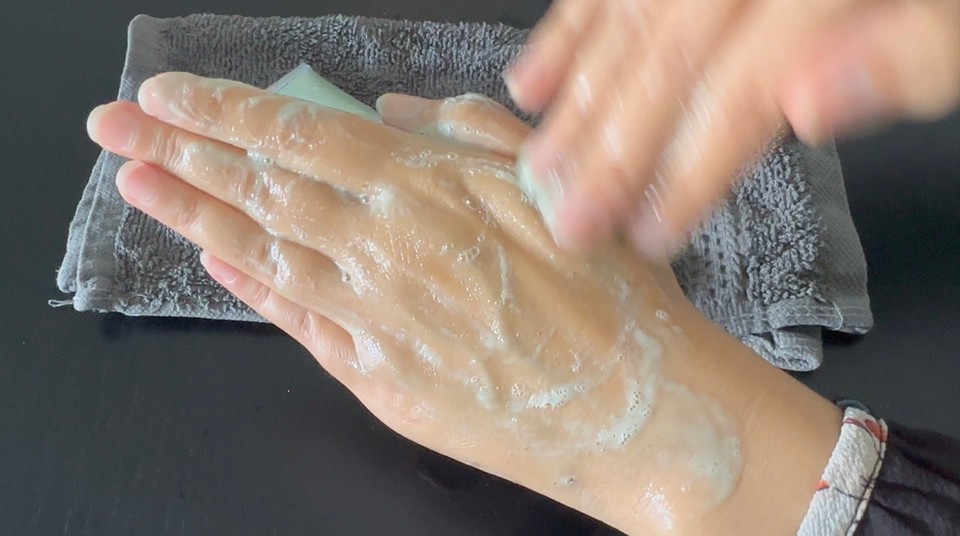
Cocoa Butter
Cocoa butter is a rich emollient that deeply nourishes and moisturizes the skin. It's packed with antioxidants and fatty acids that help to repair and protect the skin's barrier. After exfoliation, cocoa butter leaves the skin feeling soft, smooth and rejuvenated. Its high vitamin E content helps to protect the skin from oxidative stress and environmental damage, promoting a youthful appearance. You can swap the cocoa butter with Kokum Butter.
Emulsifying Wax (Cetearyl Wheat Straw Glycerides, Cetearyl Alcohol)
The emulsifying wax helps blend the scrub's oil and water phases, creating a stable and homogenous mixture. It also contributes to the creamy texture of the scrub, making it easy to apply and rinse off. Beyond its role in stabilization and texture, emulsifying wax forms a protective layer on the skin's surface. This layer helps to lock in moisture, preventing dehydration and providing a smooth, soft feel to the skin. It enhances the overall sensory experience of the scrub, making it luxurious to use. You can replace this emulsifying wax with Polawax, Olivem 1000, Montanov 68 or Emulsifying Wax NF.
Coffee Oil (Coffea Arabica Seed Oil)
Coffee oil is rich in antioxidants and essential fatty acids, providing anti-inflammatory and soothing benefits. It helps to reduce redness and puffiness, giving the skin a healthy, radiant glow. The oil also imparts a pleasant aroma, enhancing the sensory experience of the scrub. Its caffeine content stimulates blood flow, which can help reduce the appearance of dark circles and improve overall skin tone. You can use Rosehip Seed Oil, Argan oil, Jojoba oil or Grapeseed Oil instead.
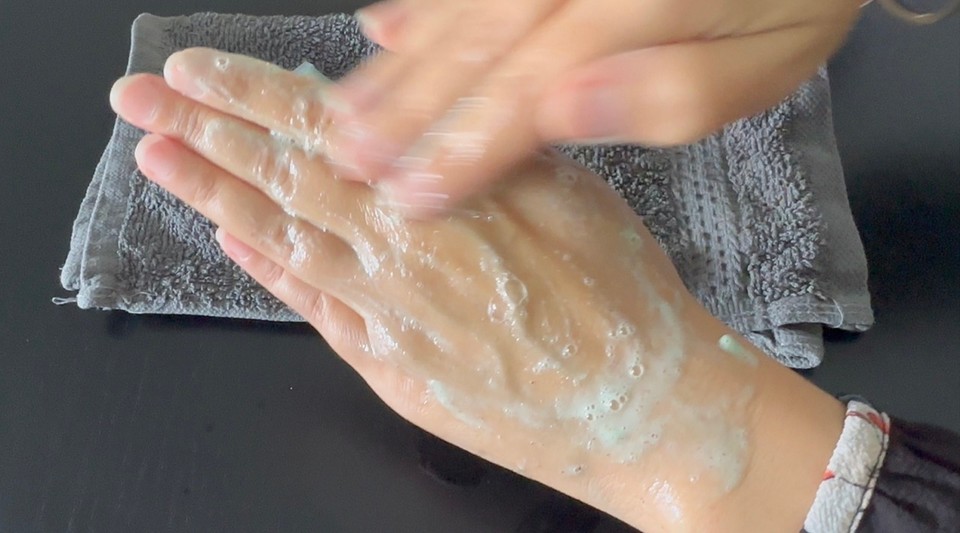
Lactic Acid
Lactic acid is an alpha hydroxy acid (AHA) that gently exfoliates the skin by breaking down the bonds between dead skin cells. It promotes cell turnover, revealing a fresher, brighter complexion. Lactic acid also helps to improve skin texture and tone, making it smoother and more even. Additionally, it has moisturizing properties, ensuring that the skin remains hydrated even as it exfoliates. I used Lactic acid 80%.
Pumice Superfine Powder
Pumice superfine powder provides mechanical exfoliation, gently sloughing away dead skin cells and impurities. It helps to unclog pores, prevent breakouts, and refine skin texture. The superfine nature of pumice ensures that the exfoliation is gentle, avoiding microtears and irritation.
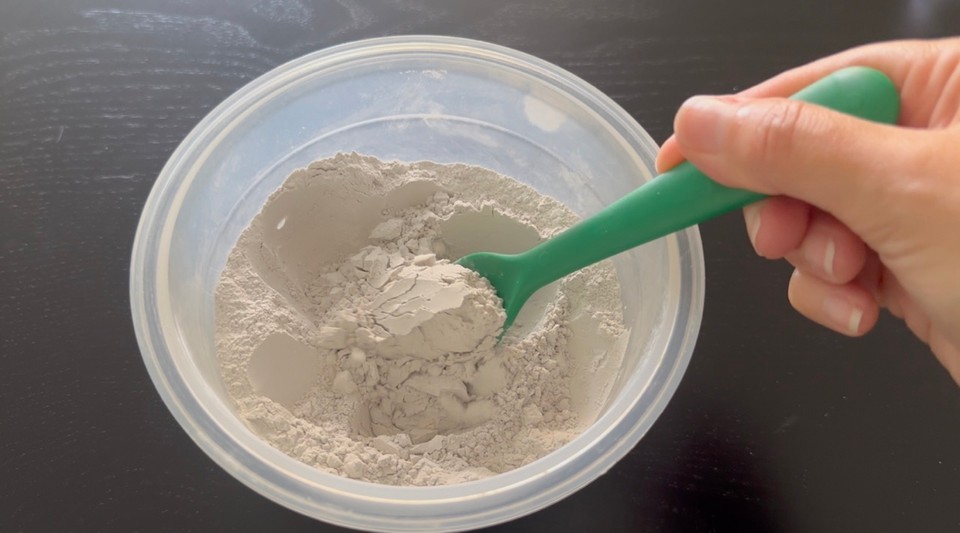
To read more about pumice: https://pubmed.ncbi.nlm.nih.gov/7354146/ https://www.cosmeticsandtoiletries.com/research/literature-data/article/21835500/characterizing-and-evaluating-the-effectiveness-of-volcanic-pumice-exfoliants
Apricot Pit Powder (Prunus Persica Seed Powder)
Apricot pit powder is another natural exfoliant that works alongside pumice to remove dead skin cells. It enhances the scrub's exfoliating power while providing additional nutrients to the skin. The powder is finely ground to ensure a gentle yet effective exfoliation, contributing to a smoother, more polished skin surface. You can use Walnut Shell Powder, Almond powder or olive pit powder instead.
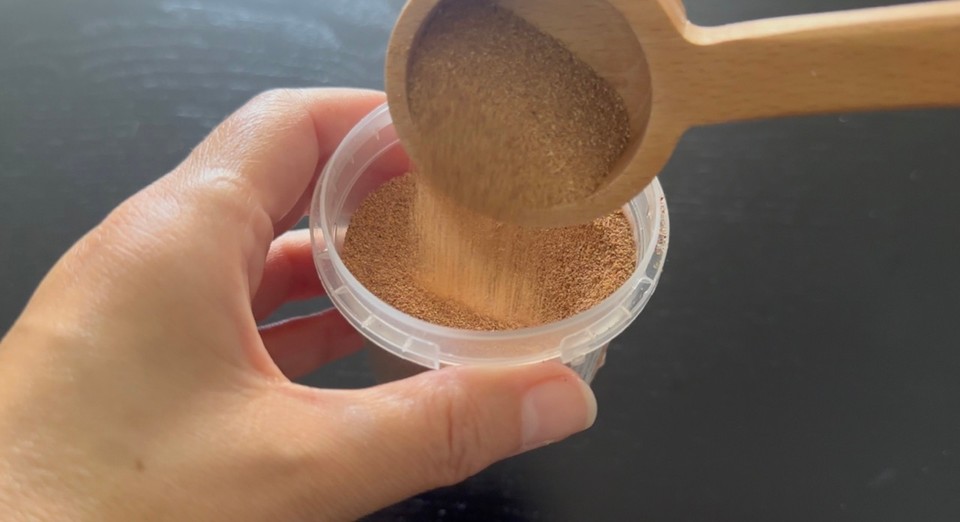
Chlorophyll Powder (Sodium Sulfate, CI 75810)
Chlorophyll powder not only adds a natural, vibrant green color to the scrub, making it visually appealing, but it also provides additional skincare benefits. Chlorophyll is known for its detoxifying properties, helping to cleanse the skin of impurities and toxins. It has antioxidant properties that protect the skin from environmental damage, promoting a healthy and glowing complexion. Furthermore, chlorophyll can help reduce inflammation and promote healing, making it beneficial for irritated or acne-prone skin. You can use mica powder instead and choose any color you like.
The final pH should be 4.5-5. If you use another preservative, follow your supplier's instructions. Make sure it is effective in this pH range.
Use the calculator to adjust the amount of hair serum you wish to make.
Method:
- Add the water phase (phase A) ingredients to a heat-resistant beaker. Start with the gum and glycerin. Combine the glycerin and the gum to make a slurry. Add the distilled water and the decyl glucoside.
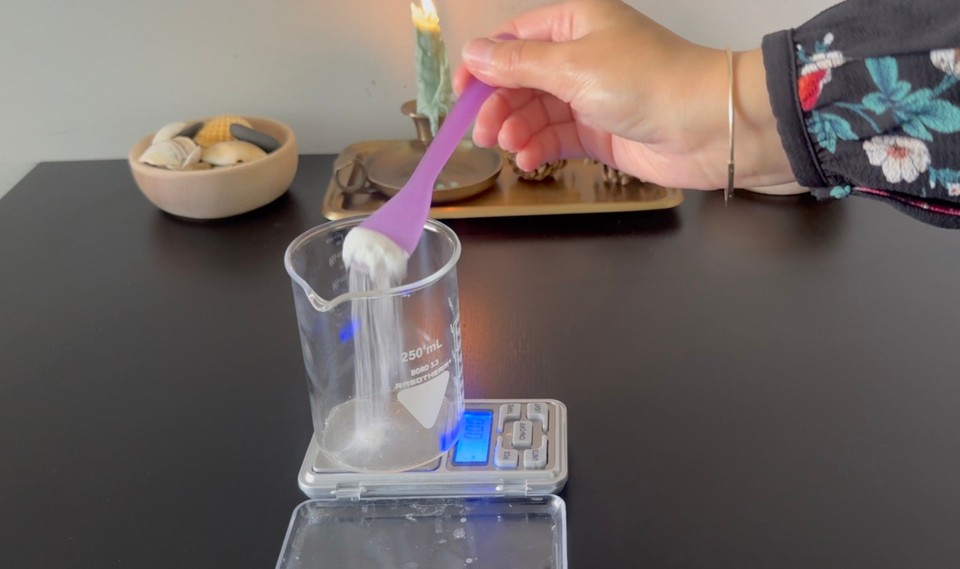
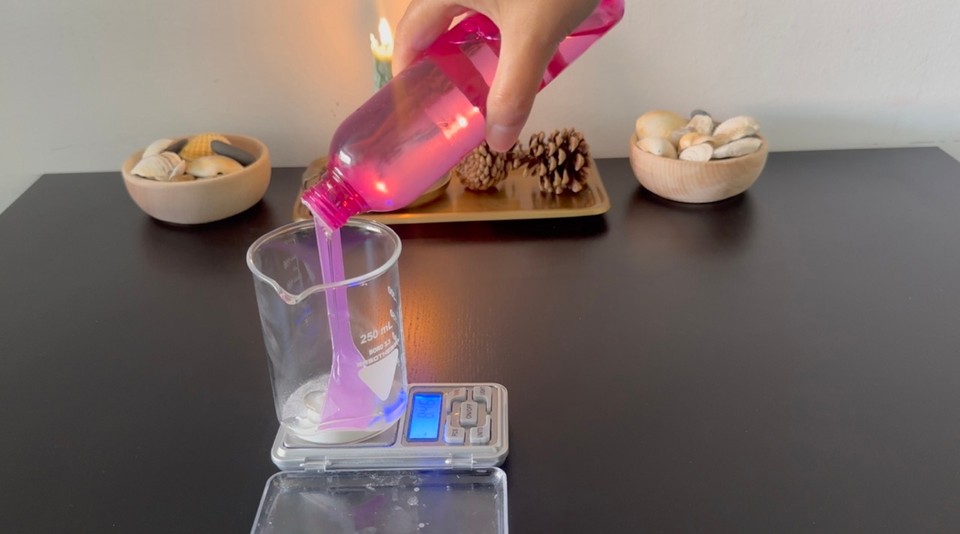
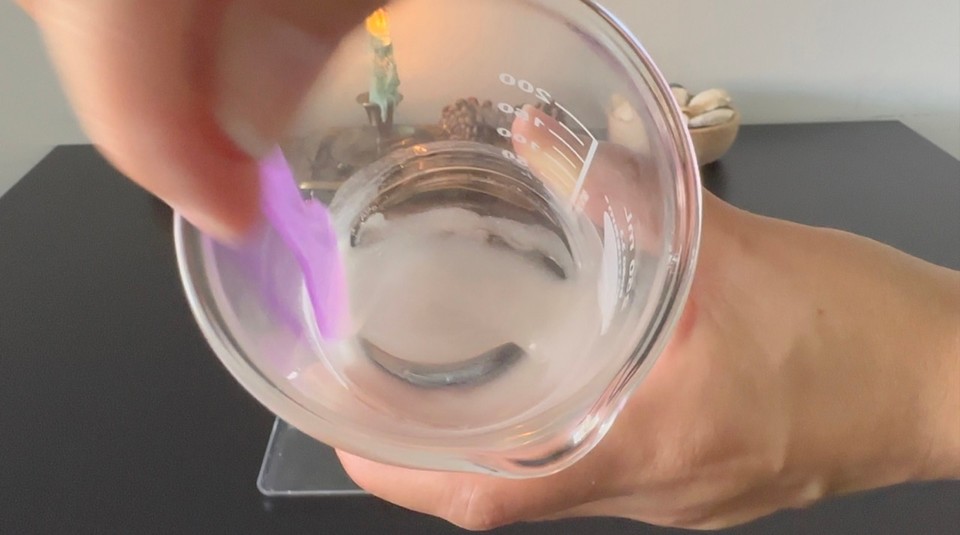
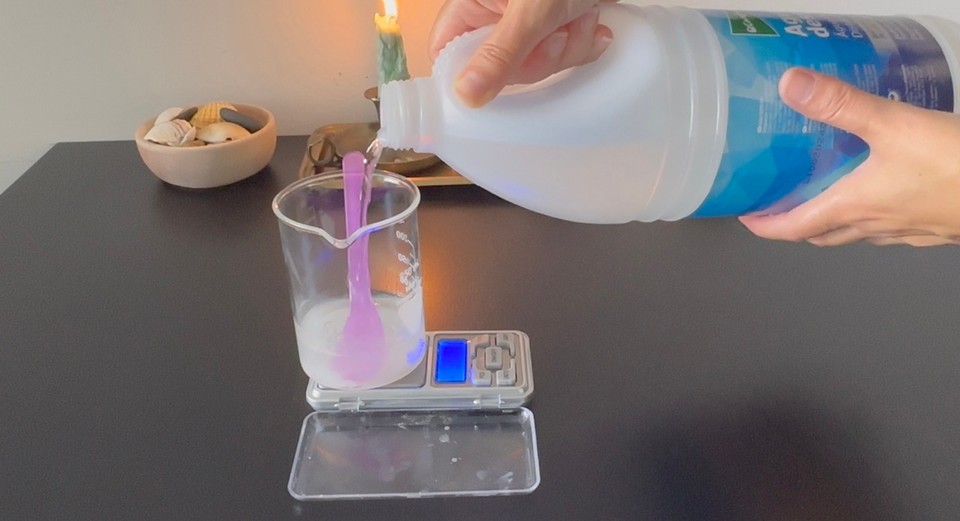
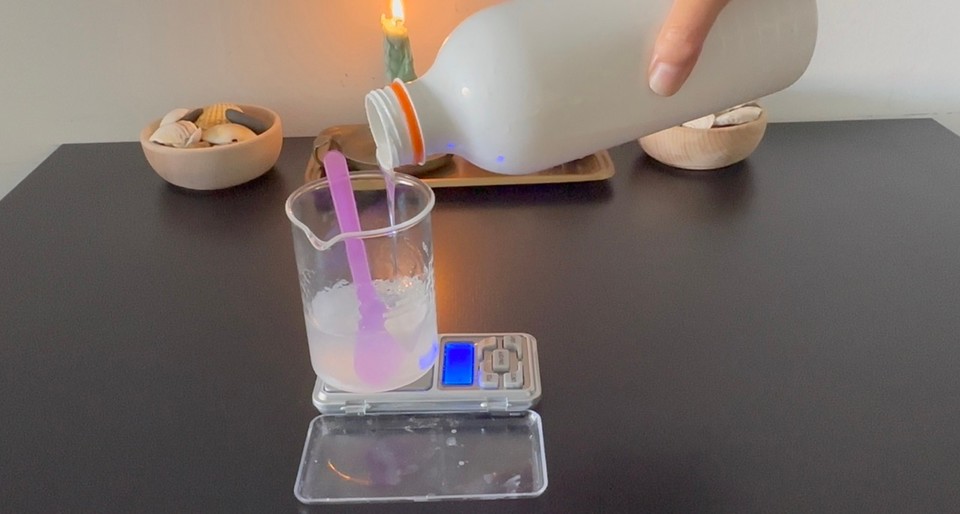
- Add the oil phase (phase B) ingredients to another heat-resistant beaker.
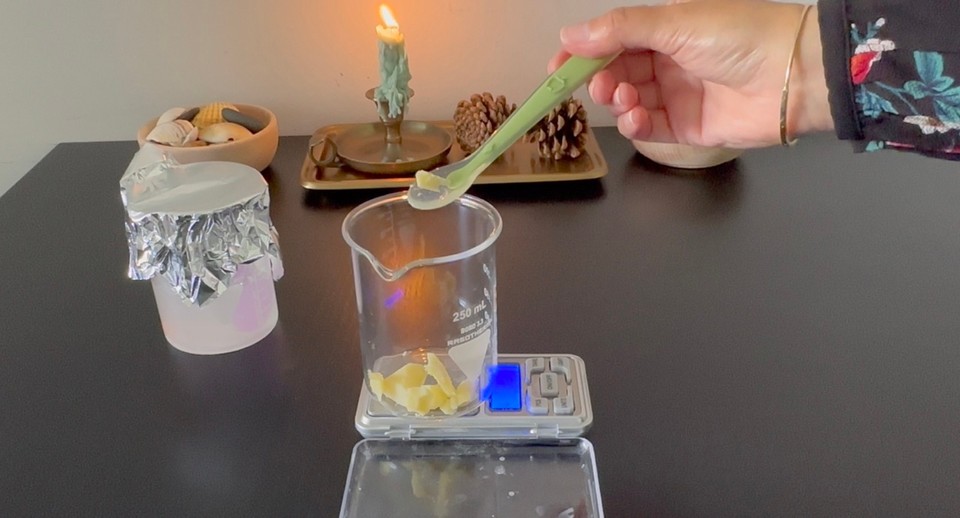
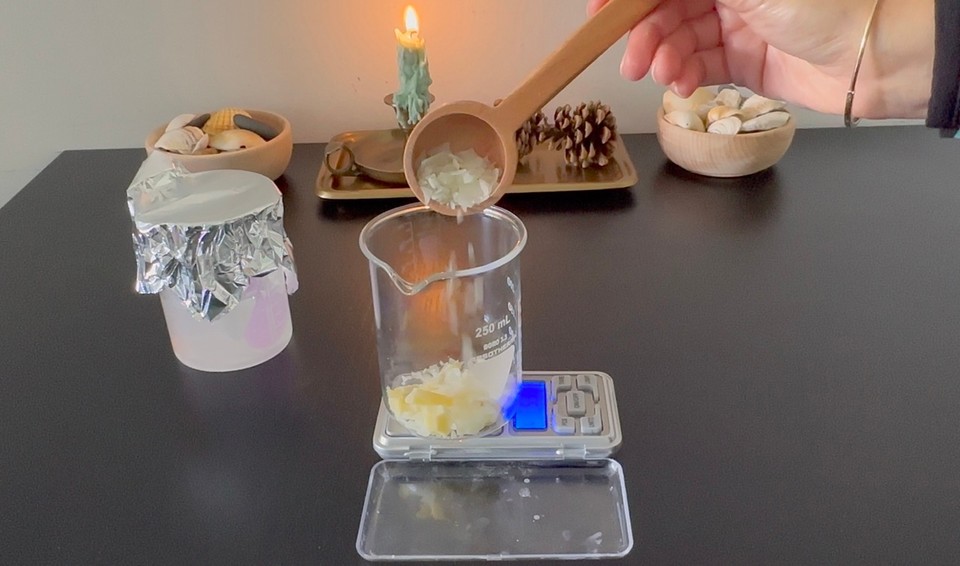
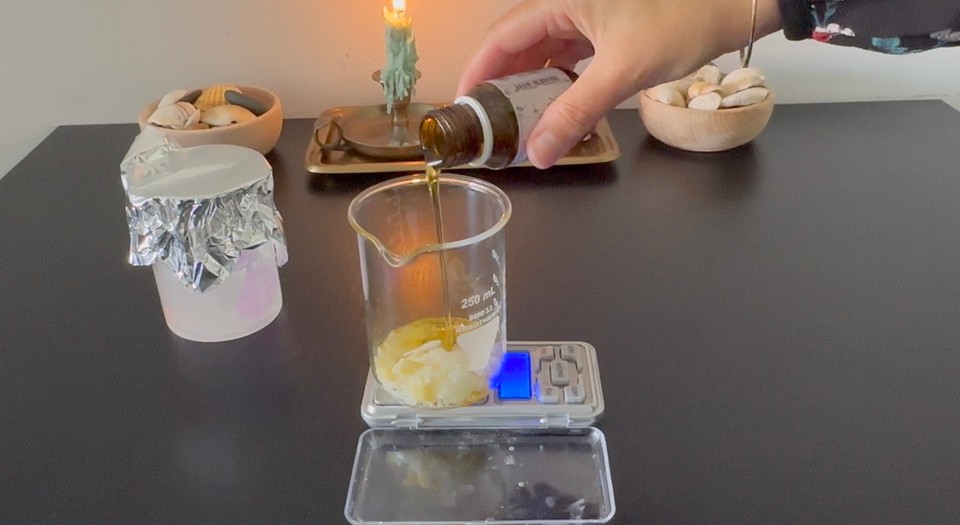
- Place the oil and water phases into a double boiler on medium heat (for 25 minutes) to melt the oil phase. Cover the water phase beaker with aluminum foil to minimize water evaporation. (when working with bigger batches, you should scale your water phase before heating and after removing it from the heat. Calculate the water evaporated during the heating and add the missing amount to the water phase beaker).
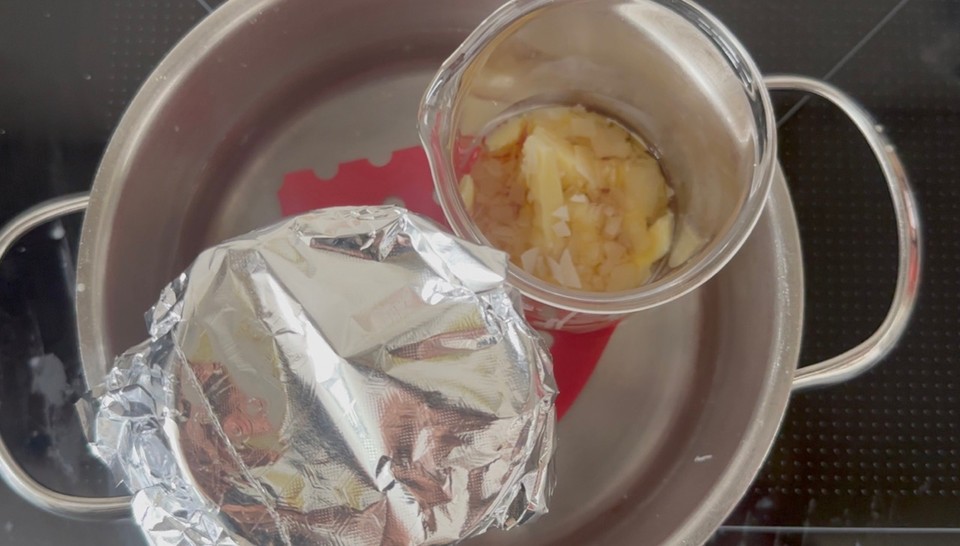
- Prepare phase C in a different container and set it aside.
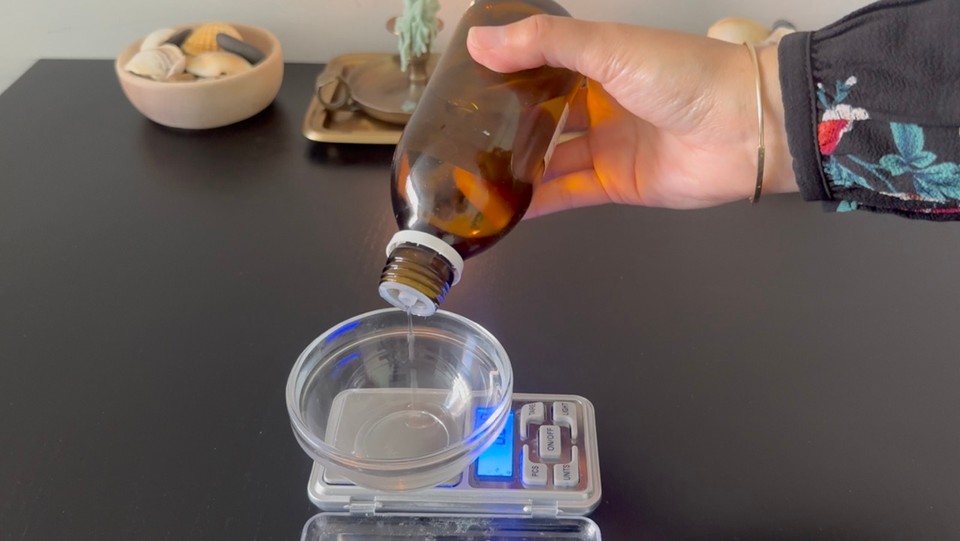
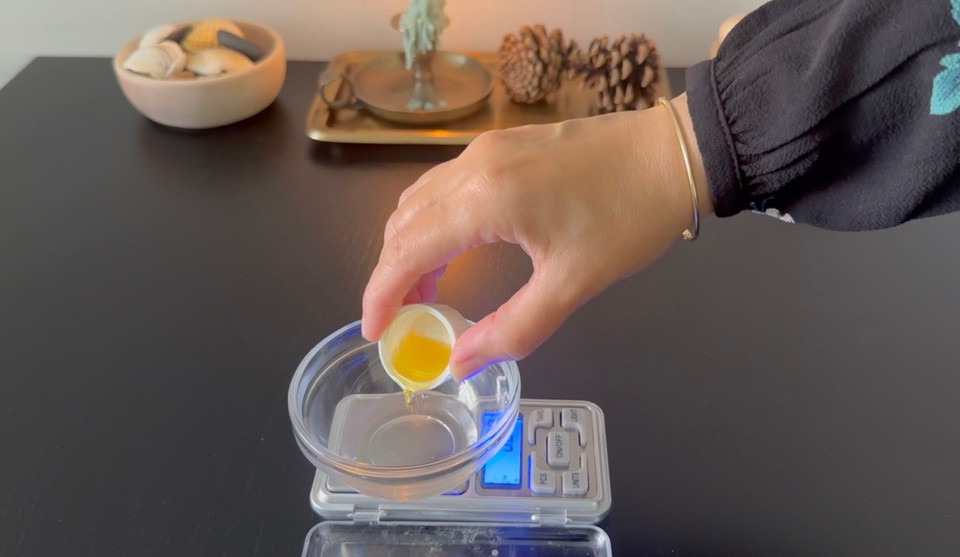
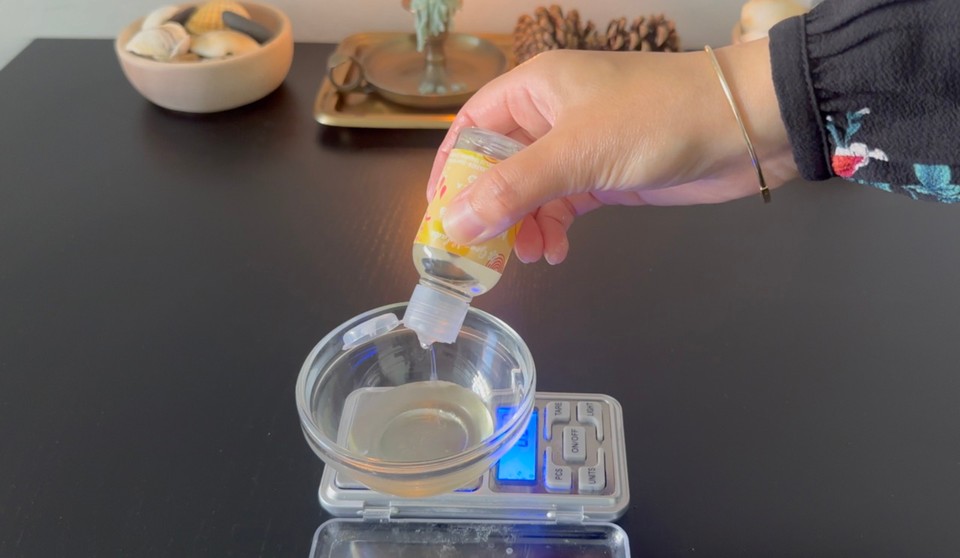
- Prepare phase D in a different container and set it aside.
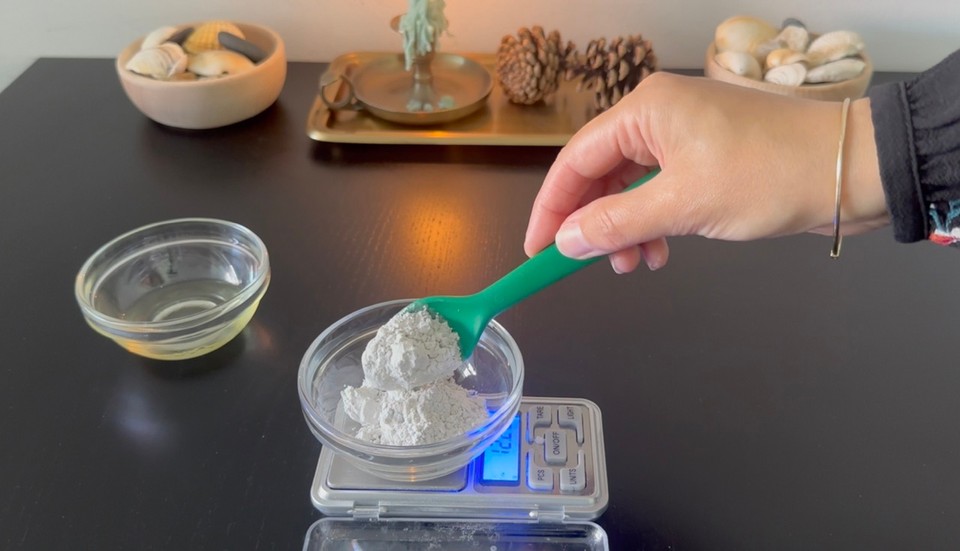
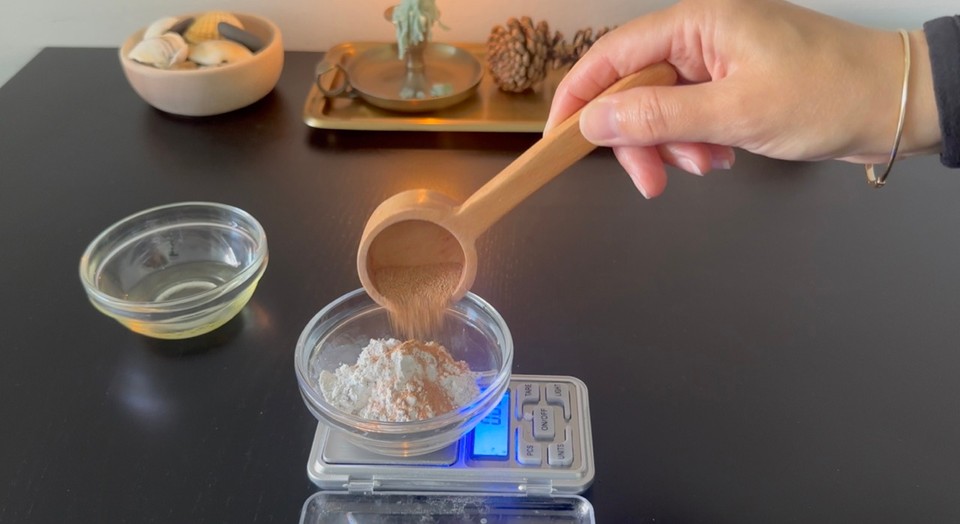
- Remove phases A and B from the heat. Combine phases A and B using a high-speed blender for 2 minutes to create a stable emulsion.
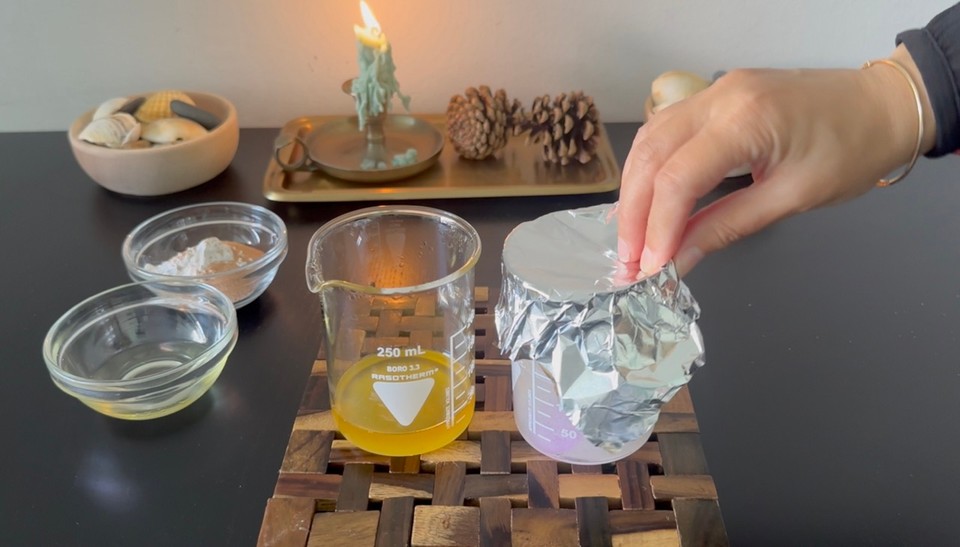
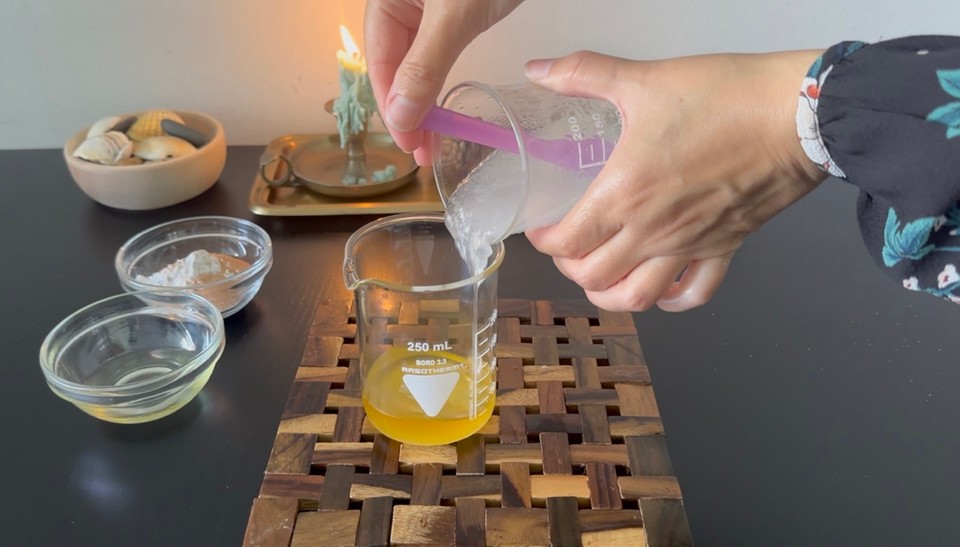
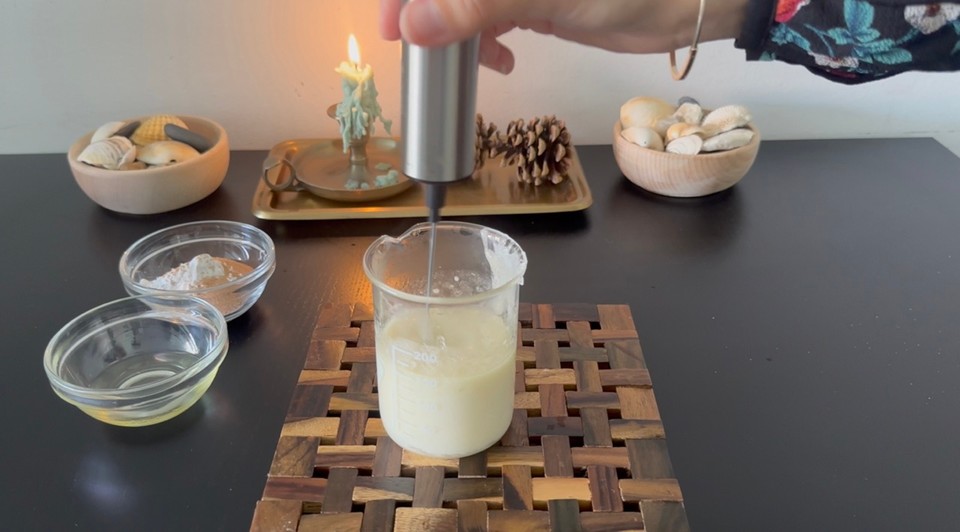
- When the emulsion cools to less than 40 degrees Celsius, add phase C and mix well to combine.
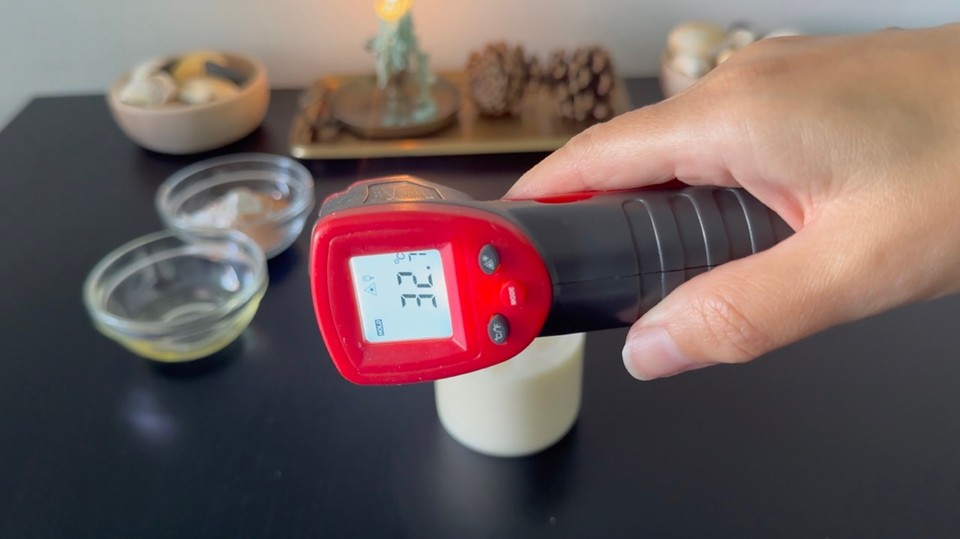
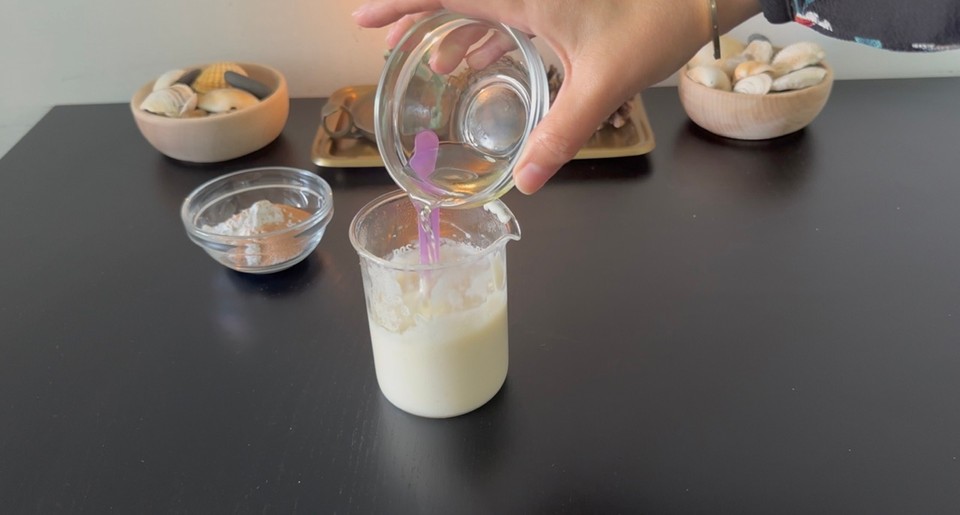
- Check PH level and adjust if necessary. To read more about PH adjustments in cosmetics, check this post. PH should be 4.5-5.
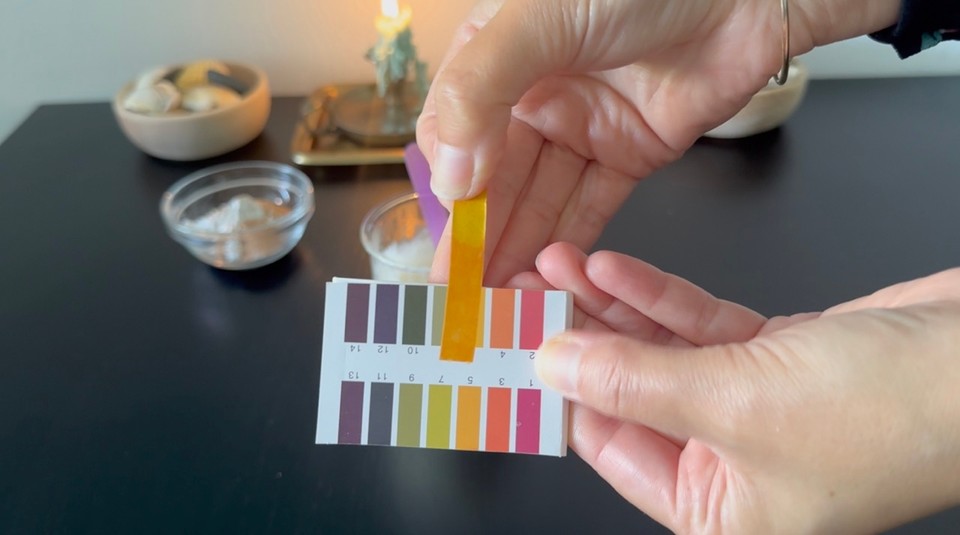
- If you want to add color, add it now and mix to combine. I added chlorophyll powder, which has a green color.
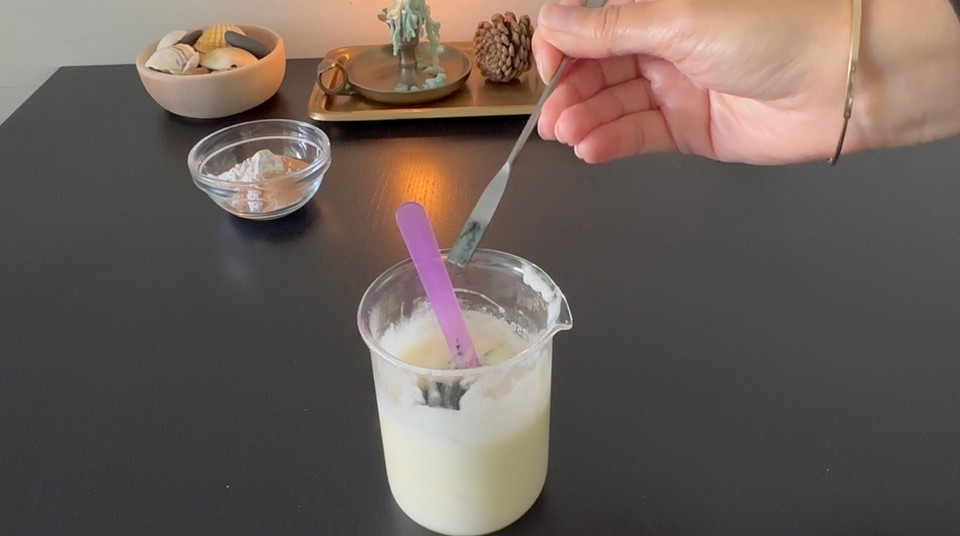
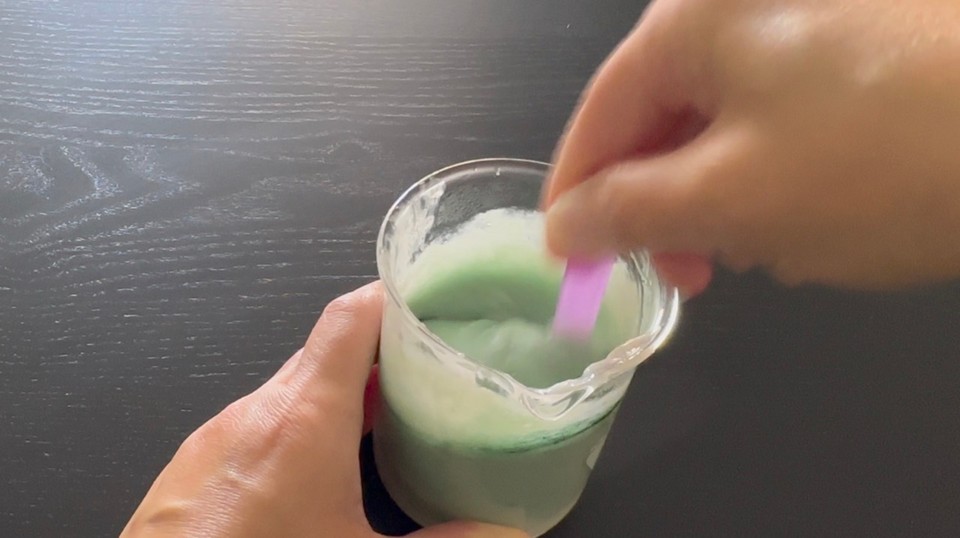
- Add phase D and mix.
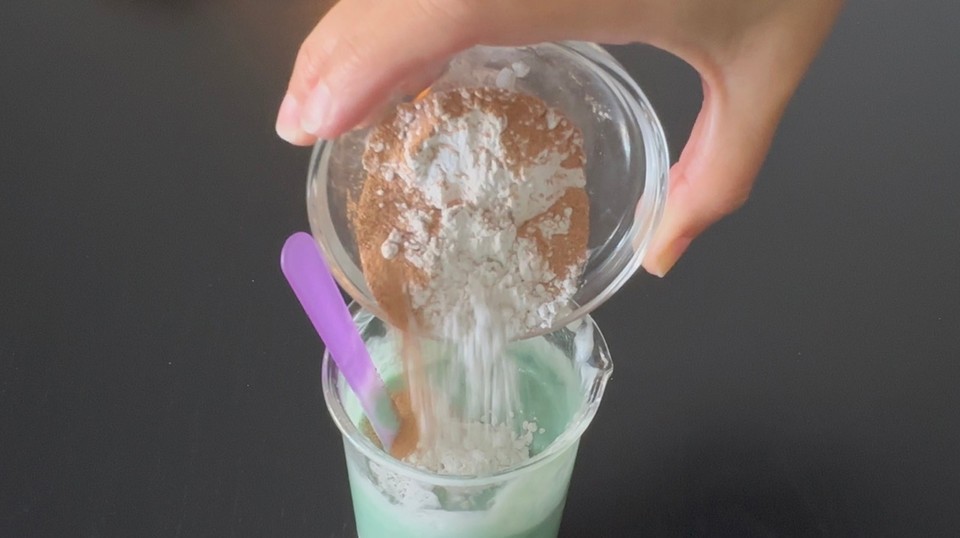
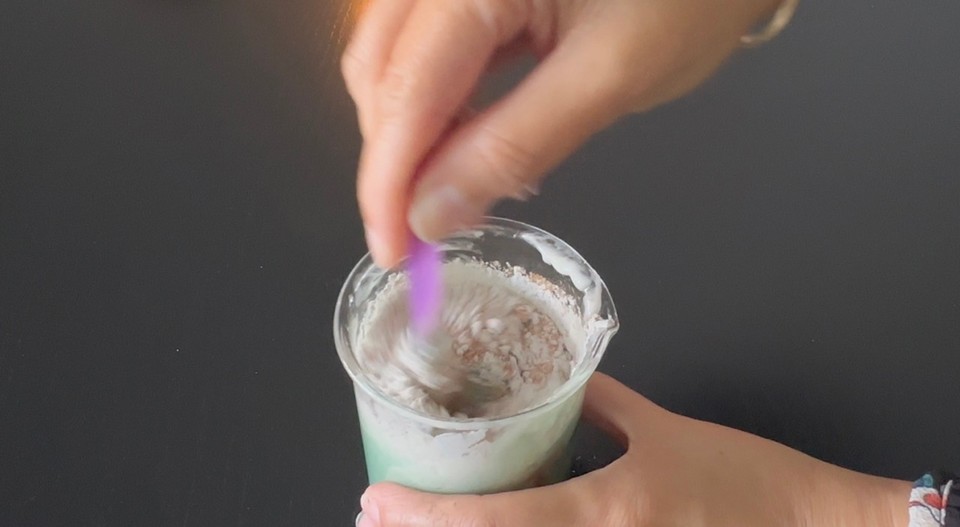
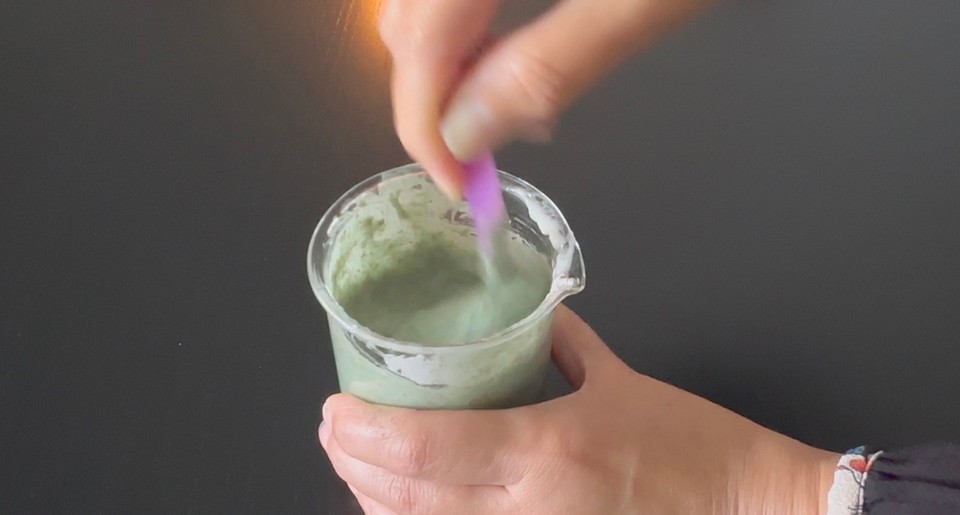
- Let the emulsion rest for 6-12 hours to let the foam go down, and the emulsion will thicken. Pour into the container of choice. Final consistency will form after a day.
